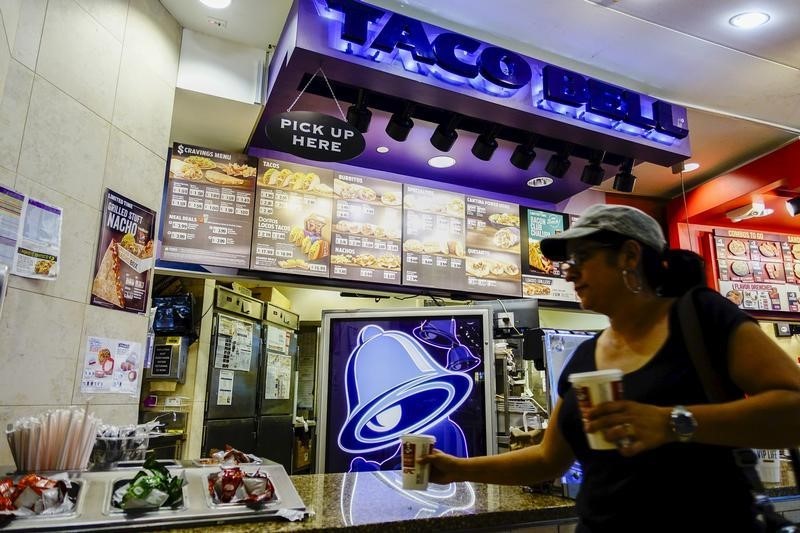By Lisa Baertlein
LOS ANGELES (Reuters) - Taco Bell said on Monday its more than 6,000 U.S. fast-food restaurants would stop using eggs laid by caged hens by Jan. 1, 2017, years ahead of the deadlines set by its bigger rivals.
The announcement came amid mounting pressure on Taco Bell to remove artificial ingredients, to source products from more humanely raised animals and to match Chick-fil-A, McDonald's Corp (N:MCD), Subway and other rivals' commitments to sourcing meat raised with fewer antibiotics.
McDonald's said in September its 16,000 U.S. and Canadian restaurants would switch to cage-free eggs within 10 years.
The Golden Arches uses about 2 billion eggs each year in the United States, where it dominates breakfast. Analysts estimate that breakfast accounts for about 25 percent of McDonald's domestic sales and roughly 40 percent of profit.
Taco Bell, which recently said that breakfast accounted for 6 percent of the chain's sales mix, uses the equivalent of 130 million eggs each year.
McDonald's cage-free commitment demands far greater change in the North American egg industry that is rebuilding flocks after the worst bird flu outbreak in U.S. history. For example, its recently launched all-day breakfast program sent egg prices higher.
Burger King (TO:QSR), also a small player in the breakfast category, has committed to going 100 percent cage-free for its eggs by 2017.
Dunkin' Donuts (O:DNKN) in March said that 10 percent of all eggs sourced for its breakfast sandwiches in the U.S. would be from cage-free hens by the end of 2016.
Elsewhere, Starbucks Corp (O:SBUX) and Panera Bread Co (O:PNRA) each have said they would make the move to cage-free eggs by 2020.
Taco Bell, a division of Yum Brands Inc (N:YUM), said its whole eggs would be certified according to cage-free egg production standards set by the American Humane Association.
The chain also reiterated that it would remove artificial flavors and colors, added trans fat, high fructose corn syrup, and unsustainable palm oil from its core menu items by the beginning of 2016.

(This story corrects to add details on rivals and context on egg industry.)